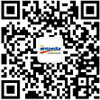Role of Tob in T-cell activation

Regulation of T cell activation is a crucial component of balanced functioning of the immune system. If the T cell response is too great and activation of self-responsive cells or unstimulated cells is not suppressed, then autoimmune disorders or tissue injury can result. Unstimulated T cells are maintained in a quiescent state and the activity of self-reactive T cells is maintained in an anergic state in which IL-2 expression is repressed. IL-2 is a cytokine with a key role in the activation and proliferation of T cells. The maintenance of T cells in the anergic or unstimulated state may not involve just an absence of activation, but an active repression of IL-2 expression, T cell proliferation and activation. TGF beta may play a role in suppressing T cell activation. Tob is a factor identified recently that represses T cell activation that is a member of a family of genes with anti-proliferative properties. Tob expression is highest in unstimulated and anergic T cells, and is reduced in activated T cells. Tob interacts with the TGF activated transcription factors SMAD2 and SMAD4, increasing their binding to the IL-2 promoter, and helping to repress IL-2 expression. This role of Tob suggests that interference in Tob’s function may lead to autoimmune disease.
Contributor:
REFERENCES: Tzachanis D, Freeman GJ, Hirano N, van Puijenbroek AA, Delfs MW, Berezovskaya A, Nadler LM, Boussiotis VA. Tob is a negative regulator of activation that is expressed in anergic and quiescent T cells. Nat Immunol. 2001 Dec;2(12):1174-82. Tzachanis, D., Lafuente, E., and Boussiotis, V., A. TOB is a negative regulator of t-cell activation and cytokine transcription. Mod. Asp. Immunobiol. 2 (3), 117-120, 2002







